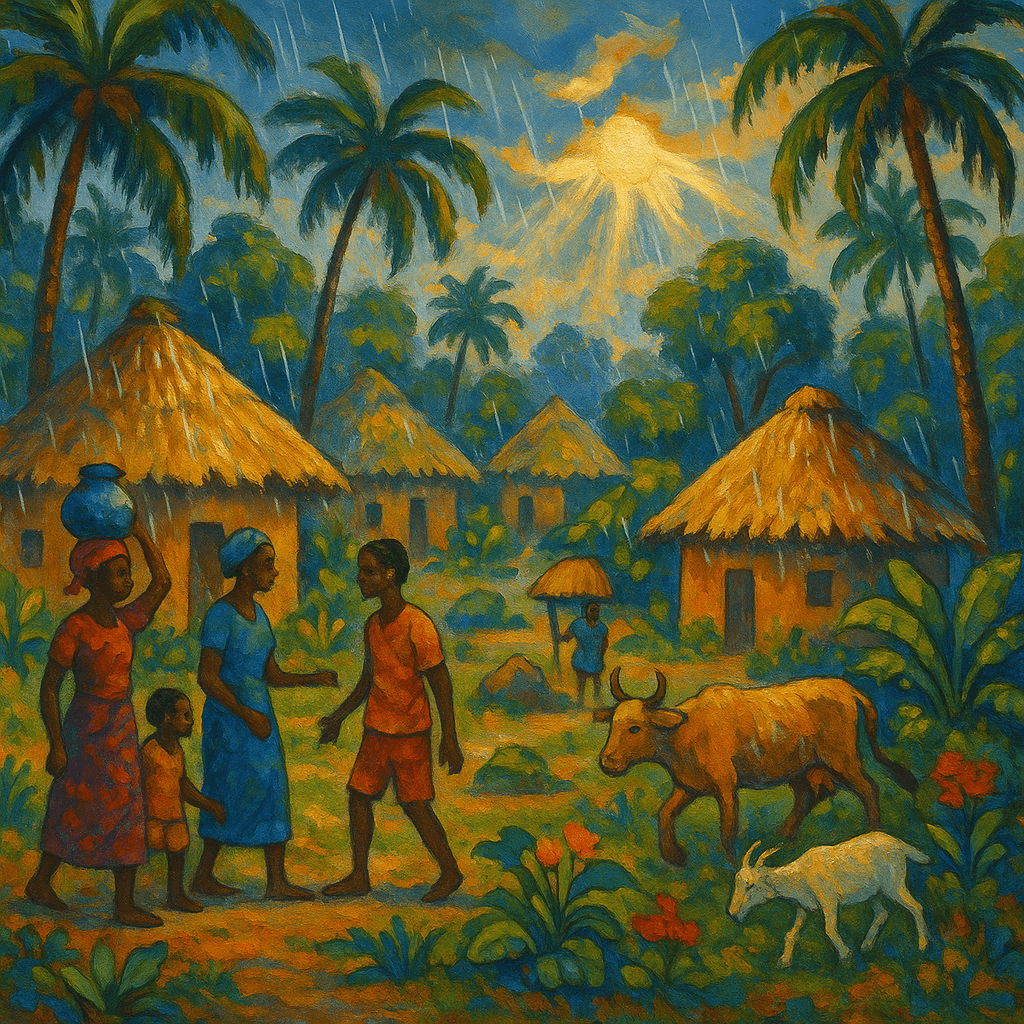Shared Adversity: The Universal Reach of Hardship

Rain does not fall on one roof alone. — Cameroon Proverb
The Proverb’s Core Message
The Cameroon proverb, 'Rain does not fall on one roof alone,' eloquently conveys that hardship and difficulty are universal experiences. Rather than singling out any one individual, circumstance, or community, the metaphorical 'rain' falls broadly, touching many lives. This wisdom urges listeners to recognize their troubles as part of a broader human experience, fostering resilience through a sense of solidarity.
Historical Perspectives on Collective Suffering
Throughout history, periods of turmoil—from plagues to wars—have echoed the sentiment of this proverb. During the Black Death, for instance, entire towns and nations were afflicted, erasing boundaries between social status and geography. Chronicles from that era show how shared adversity sometimes drew communities together, catalyzing both grief and unity in the face of widespread misfortune.
Social Cohesion in Times of Trial
Beyond historical examples, modern societies also reveal the power of this proverb. When natural disasters or economic recessions hit, their impacts seldom discriminate. Sociologist Emile Durkheim observed in his studies (1893) that communal challenges, while stressful, often lead to stronger social bonds. People instinctively reach out to neighbors and strangers alike, finding comfort in shared vulnerability and mutual support.
Learning Empathy Through Shared Experience
Importantly, recognizing that no one is exempt from life’s 'rain' cultivates empathy. Literature often explores these shared burdens—John Steinbeck’s 'The Grapes of Wrath' (1939), for instance, illustrates how families displaced by the Dust Bowl formed tight-knit migrant communities, leaning on one another for survival. Such narratives remind us that witnessing struggle can move us toward deeper compassion and solidarity.
From Acceptance to Action
Ultimately, the proverb guides us from passive acceptance to active engagement. While adversity is a common lot, acknowledging its ubiquity can inspire collective action rather than resignation. Grassroots movements, charitable initiatives, and international aid efforts all spring from this recognition—that when the rain pours, we must not simply shield our own roofs, but join together to weather the storm.